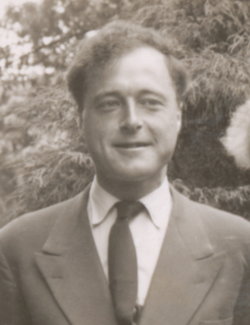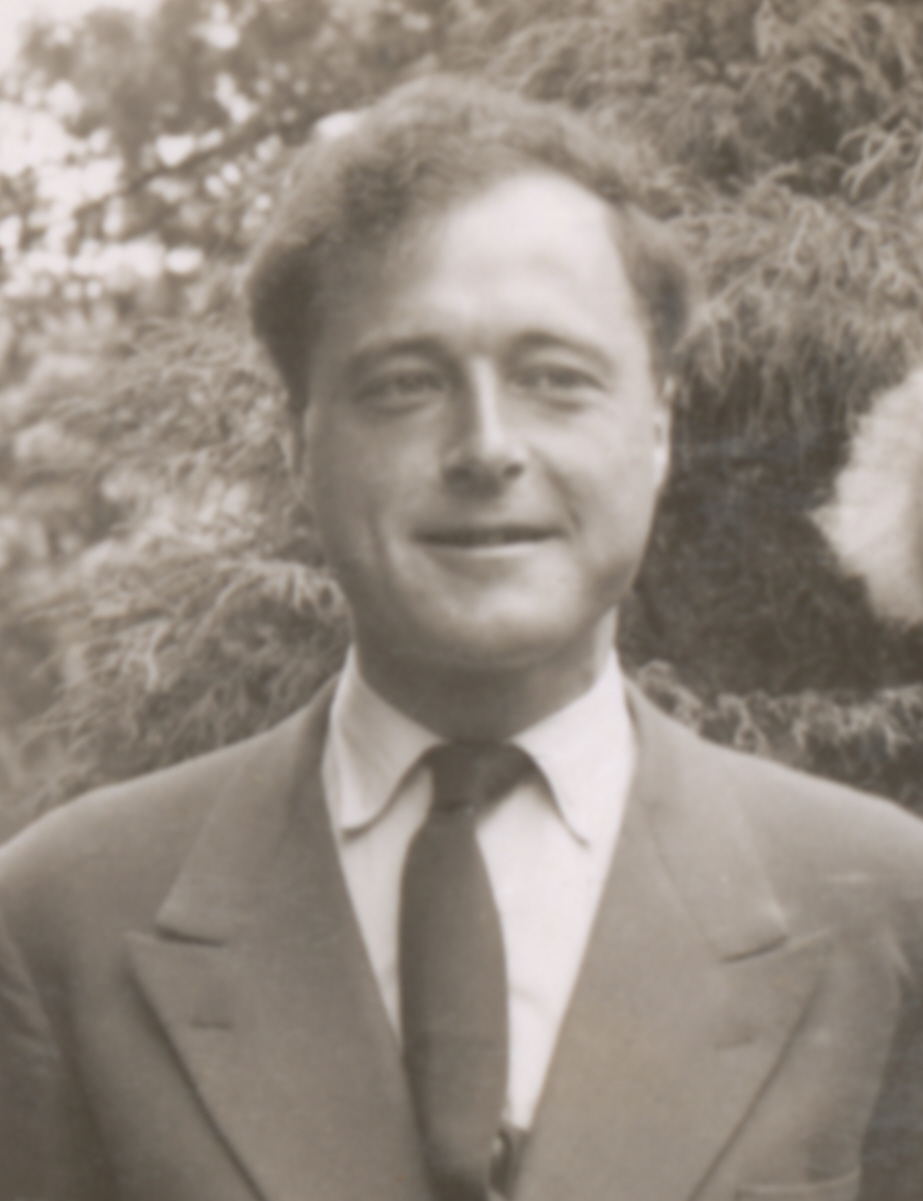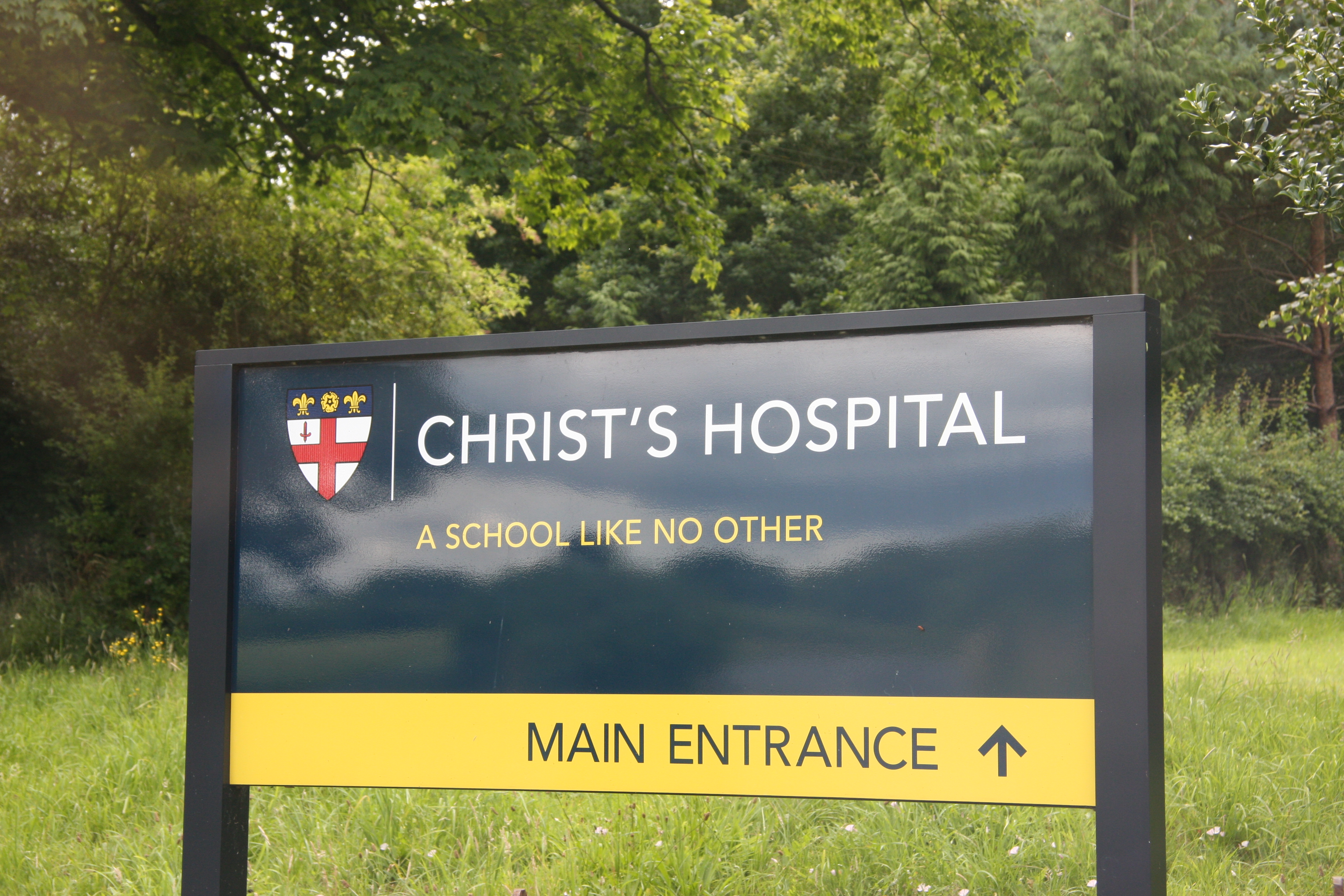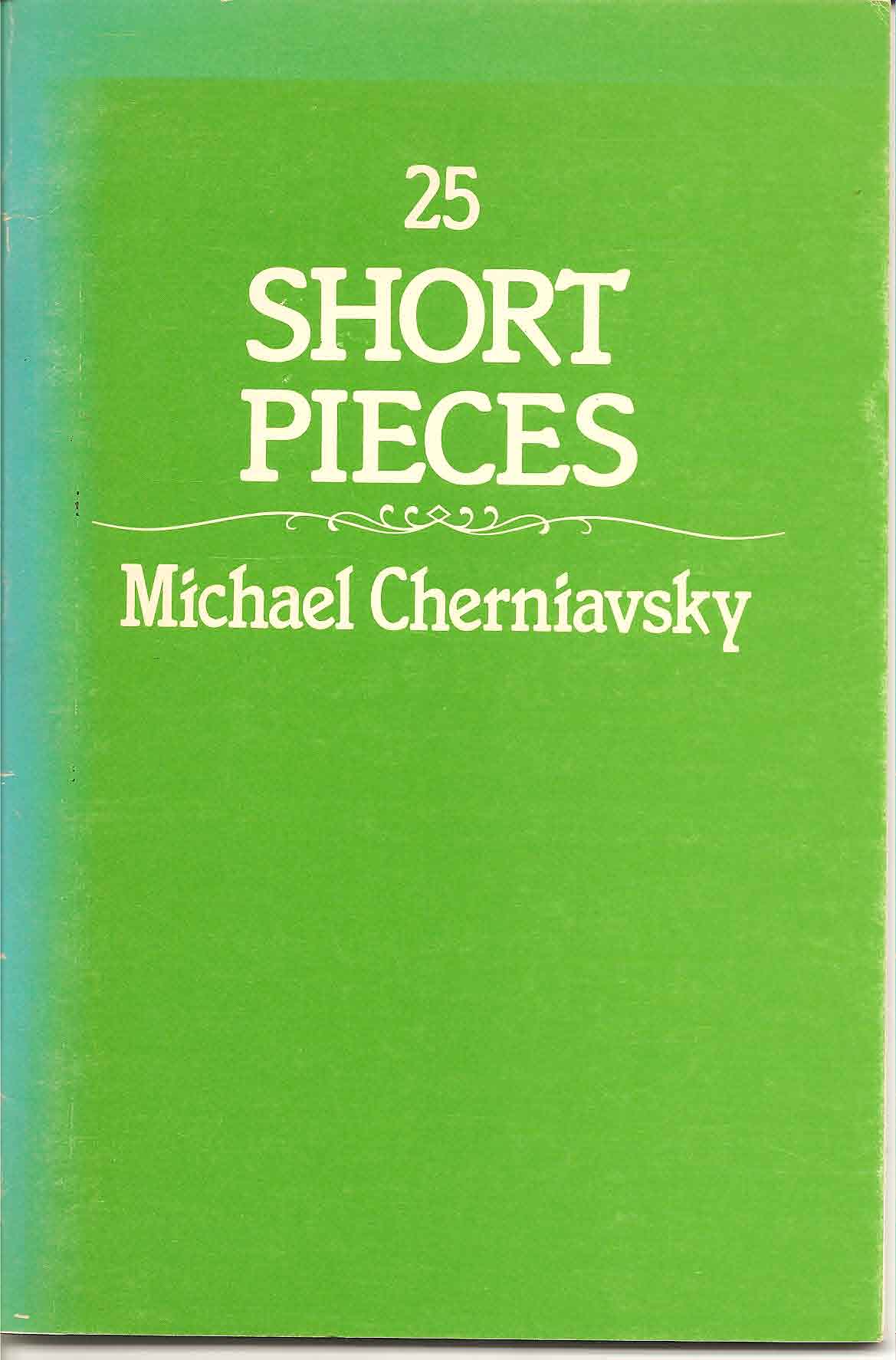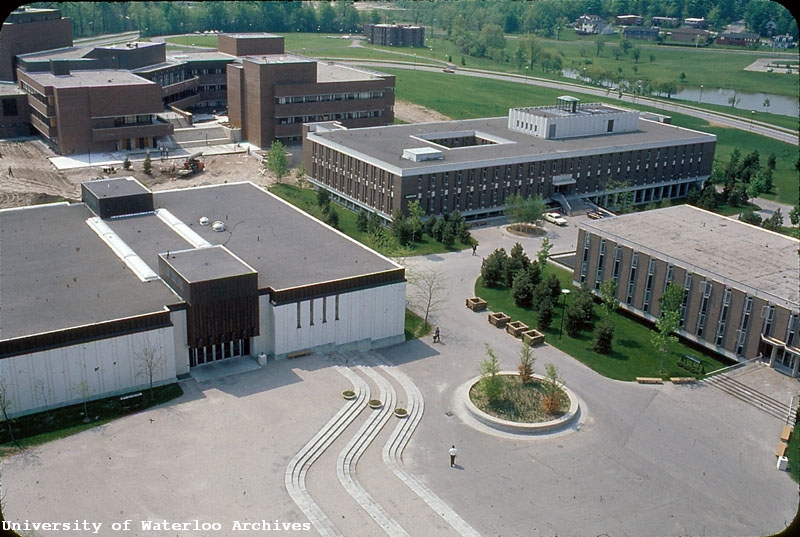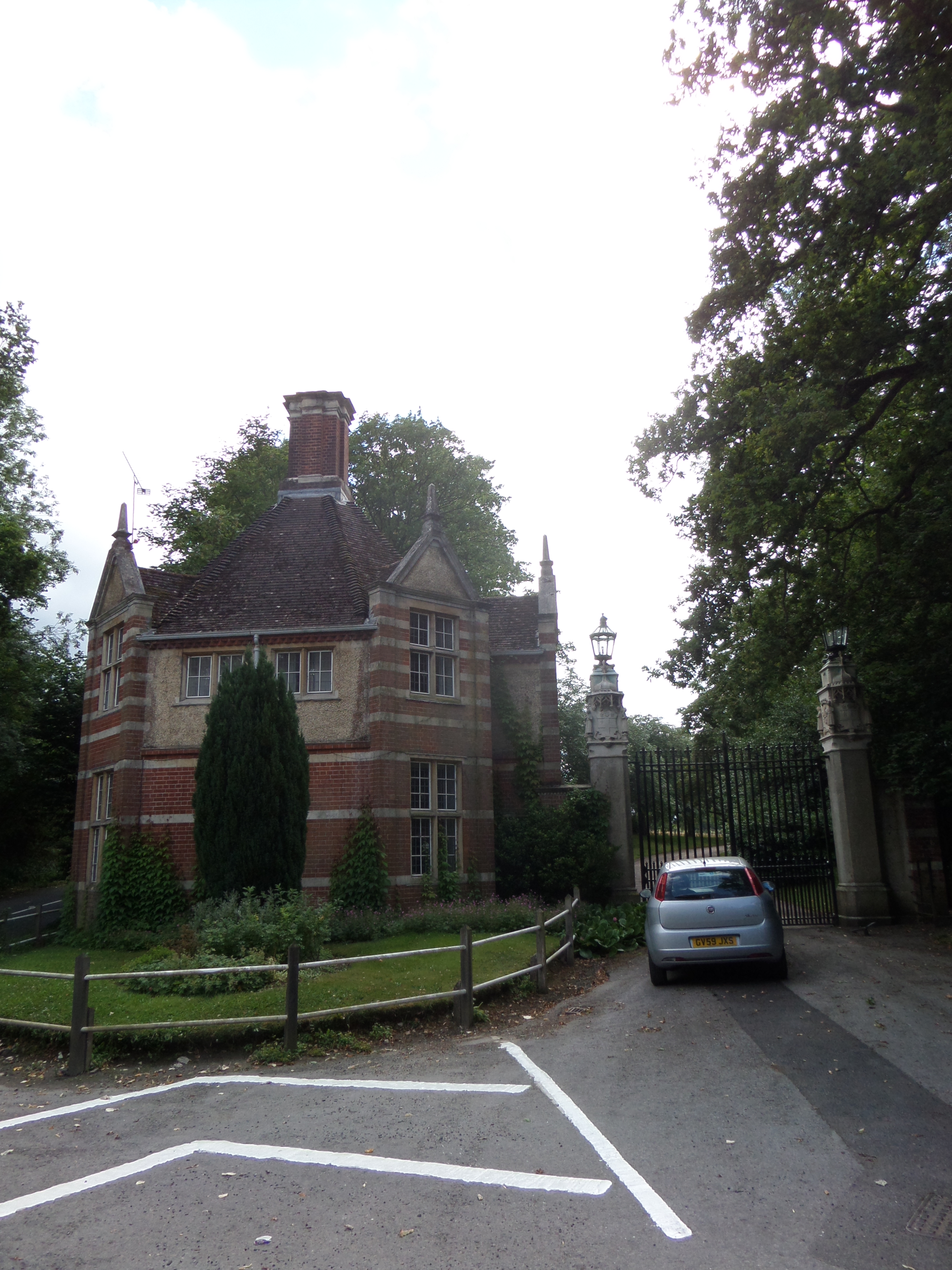His father was the celebrated Ukrainian Jewish cellist, Mischel Cherniavsky – whose trio was said to have played before Tsar Nicholas II of Russia – and his mother, Mary, the daughter of Vancouver, Canada sugar baron Benjamin Tingley Rogers. He was the eldest of five sons.
Michael Cherniavsky was privleged to have an elite eduction at the best schools. His life-long interest in history was fueled at London's ancient Westminster School [formally the Royal College of St. Peter in Westminster] which boasted alumni such as Christopher Wren, Jeremy Bentham, Edward Gibbon, John Locke and seven prime ministers. And according to his obituary in the Daily Telegraph, it was at Westminster "…where he founded an anti-Fascist group [in the 1930s] called the United Front of Progressive Forces…" and adopted a personal and life-long philosophy of pacifism.
He pursued the study of history at Oxford and was Brackenbury Scholar at Balliol.
During his tenure at Christ's Hospital, he was appreciated for his warmth and patience with students and colleagues and the genuine personal interest he took in each one of his charges. He helped many students secure scholarships and influenced their career choices.
He enthusiastically mentored CH's Debating Society where at the outset, in his own words, "…I was equipped with nothing more than a mild interest in debating and a grateful recognition that I might have been saddled with some far less congenial extra-curricular responsibility."
Cherniavsky specialized in medieval history, historiography and the philosophy of history. He was a competent classicist and was profoundly well read. He maintained an extensive personal library. His books were friends which he loved, consulted and annotated.
He conveyed a familiarity with classics and especially of historians as if he had taken tea with all of them. He delighted in introducing his students to the stirring prose of Mill and the craft of Gibbon, Macaulay and Trevelyan.
He moved to the University of Waterloo for the 1967 winter term where he joined a dynamic History Department. However, his teaching style and almost shy demeanour were curiously at odds with the go-go atmosphere at Waterloo where some of his colleagues were outstanding lecturers.
At Waterloo, Professor Cherniavsky excelled in his one-on-one chats with graduate students. In his mellifluous voice, he would gently pick apart their papers word by word. He believed that form and substance were reverse sides of the same thing in superior historical writing, but he was a stickler that each sentence in an essay have a relationship with the next and contribute usefully to the sequence of thought. He returned essays not just marked but corrected.
Professor Cherniavsky wrestled his entire life with the question (as Trevelyan put it) "...what is the object of the life of man 'qua' historian? Is it to know the past and enjoy it forever? Or is it to do one's duty to one's neighbour and cause him also to know the past? The answer to these theoretic questions must have practical effects on the teaching and learning, the writing and reading of history." He taught those willing to listen how to organize their ideas logically and convincingly and how to read, study and especially to write more effectively.
After leaving Waterloo in 1983, he returned to Horsham and assisted at Christ's Hospital where, upon his death, friends and family established a history prize in his name.
He did not publish widely. In 1981, he co-authored "Looking at Radley: an architectural and historical survey of the earlier buildings". He published three other slim volumes which were collections of his own earlier published essays.
He was a precise, learned and deeply intellectual gentleman in every way and devoted his life to inspiring his students. Surely no other former University of Waterloo history professor has had an obituary in The Telegraph.
THIS MEMORIAL PAGE is compiled and sponsored by The Society of the Cerebral Liquor.
[THANKS to Michael T. Cherniavsky's brothers Mark and Felix and his nephew Fyodor Cherniavsky for providing information and offering advice for this memorial.]
[NOTE: The quotation of George Macaulay Trevelyan is from the opening essay in his 1913 book "Clio, A Muse."]
[NOTE 2: Additional photographs of Professor Cherniavsky are welcomed. Please add them to this tribute page or e-mail to [email protected]].
His father was the celebrated Ukrainian Jewish cellist, Mischel Cherniavsky – whose trio was said to have played before Tsar Nicholas II of Russia – and his mother, Mary, the daughter of Vancouver, Canada sugar baron Benjamin Tingley Rogers. He was the eldest of five sons.
Michael Cherniavsky was privleged to have an elite eduction at the best schools. His life-long interest in history was fueled at London's ancient Westminster School [formally the Royal College of St. Peter in Westminster] which boasted alumni such as Christopher Wren, Jeremy Bentham, Edward Gibbon, John Locke and seven prime ministers. And according to his obituary in the Daily Telegraph, it was at Westminster "…where he founded an anti-Fascist group [in the 1930s] called the United Front of Progressive Forces…" and adopted a personal and life-long philosophy of pacifism.
He pursued the study of history at Oxford and was Brackenbury Scholar at Balliol.
During his tenure at Christ's Hospital, he was appreciated for his warmth and patience with students and colleagues and the genuine personal interest he took in each one of his charges. He helped many students secure scholarships and influenced their career choices.
He enthusiastically mentored CH's Debating Society where at the outset, in his own words, "…I was equipped with nothing more than a mild interest in debating and a grateful recognition that I might have been saddled with some far less congenial extra-curricular responsibility."
Cherniavsky specialized in medieval history, historiography and the philosophy of history. He was a competent classicist and was profoundly well read. He maintained an extensive personal library. His books were friends which he loved, consulted and annotated.
He conveyed a familiarity with classics and especially of historians as if he had taken tea with all of them. He delighted in introducing his students to the stirring prose of Mill and the craft of Gibbon, Macaulay and Trevelyan.
He moved to the University of Waterloo for the 1967 winter term where he joined a dynamic History Department. However, his teaching style and almost shy demeanour were curiously at odds with the go-go atmosphere at Waterloo where some of his colleagues were outstanding lecturers.
At Waterloo, Professor Cherniavsky excelled in his one-on-one chats with graduate students. In his mellifluous voice, he would gently pick apart their papers word by word. He believed that form and substance were reverse sides of the same thing in superior historical writing, but he was a stickler that each sentence in an essay have a relationship with the next and contribute usefully to the sequence of thought. He returned essays not just marked but corrected.
Professor Cherniavsky wrestled his entire life with the question (as Trevelyan put it) "...what is the object of the life of man 'qua' historian? Is it to know the past and enjoy it forever? Or is it to do one's duty to one's neighbour and cause him also to know the past? The answer to these theoretic questions must have practical effects on the teaching and learning, the writing and reading of history." He taught those willing to listen how to organize their ideas logically and convincingly and how to read, study and especially to write more effectively.
After leaving Waterloo in 1983, he returned to Horsham and assisted at Christ's Hospital where, upon his death, friends and family established a history prize in his name.
He did not publish widely. In 1981, he co-authored "Looking at Radley: an architectural and historical survey of the earlier buildings". He published three other slim volumes which were collections of his own earlier published essays.
He was a precise, learned and deeply intellectual gentleman in every way and devoted his life to inspiring his students. Surely no other former University of Waterloo history professor has had an obituary in The Telegraph.
THIS MEMORIAL PAGE is compiled and sponsored by The Society of the Cerebral Liquor.
[THANKS to Michael T. Cherniavsky's brothers Mark and Felix and his nephew Fyodor Cherniavsky for providing information and offering advice for this memorial.]
[NOTE: The quotation of George Macaulay Trevelyan is from the opening essay in his 1913 book "Clio, A Muse."]
[NOTE 2: Additional photographs of Professor Cherniavsky are welcomed. Please add them to this tribute page or e-mail to [email protected]].
